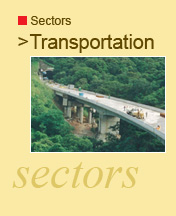|
Highway and other transportation projects have been an important part of JGP’s portfolio since the firm was established in 1993. Early projects include management of permitting procedures on the Castelo Branco Highway marginal avenues in Greater São Paulo (8 lanes - 11 km), and the Anhanguera Highway marginal avenues in Campinas (4 lanes – 25 km), as well as several other smaller works, including highway duplications and new intersections.
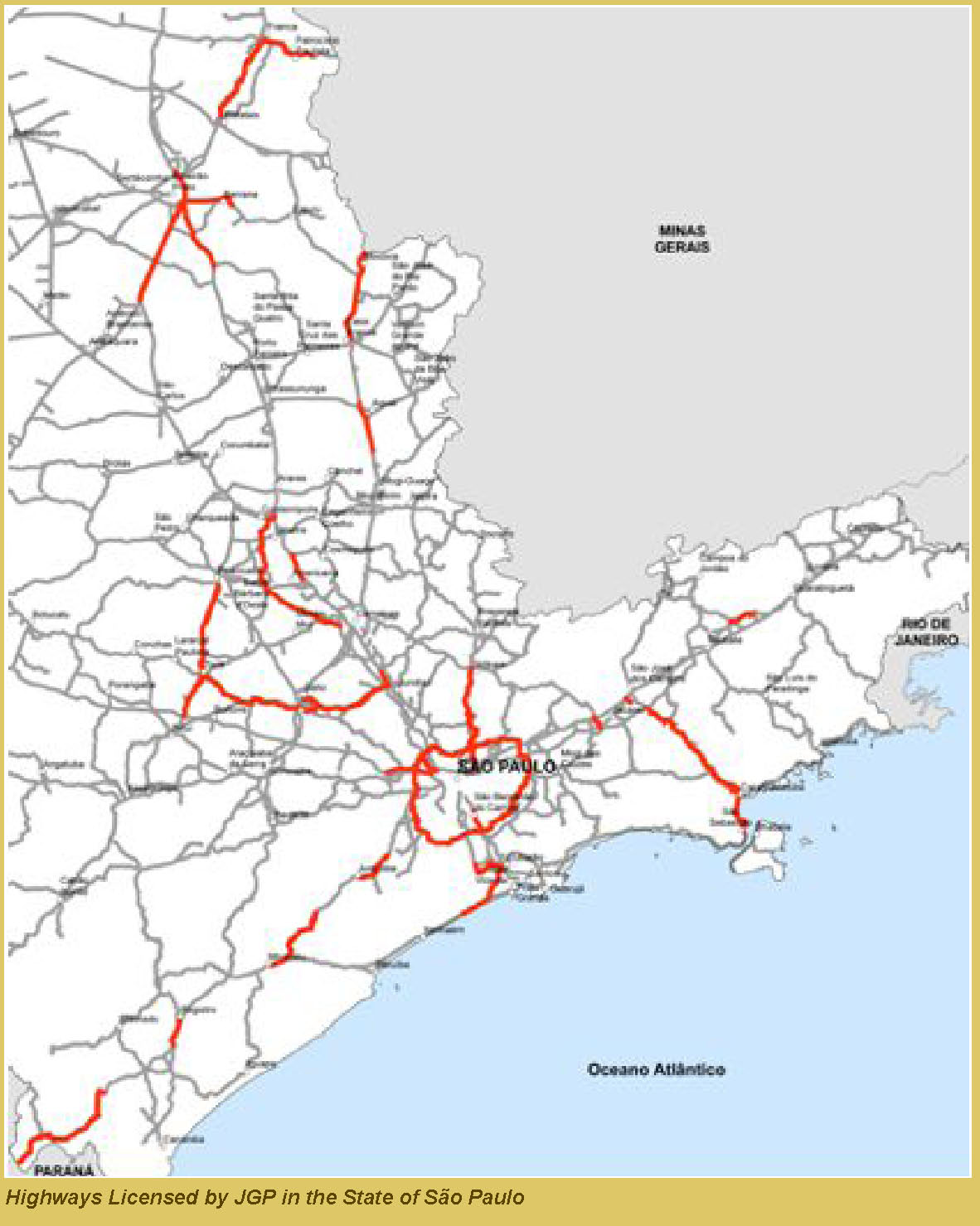
During the mid 90s, JGP was also responsible for the Environmental Installation License of 5 segments (over 80 km) of the Bittencourt Highway duplication project between São Paulo and Curitiba. Environmental construction management services were also retained.
In 1997 JGP’s highway experience led to the award of a major contract for development of the ESIA of the Western Segment of São Paulo´s Metropolitan Beltway - RODOANEL (8 lane – 32 km). Environmental and Social Management Plans were prepared subsequently, leading to issuance of the Environmental Installation License.
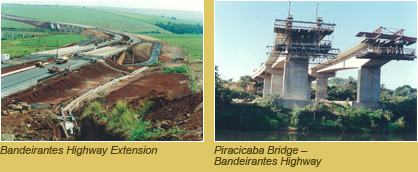
By 1999, when the State of São Paulo's first Toll-Road Concession Program was launched, JGP had consolidated a leadership position in the sector. JGP was responsible for permitting and environmental construction management of over 62% of the total investment in highway extensions and improvements executed by the 9 concessionaires responsible for a privatized highway system comprising over 2.600 km. This work was conducted during the first 5 years of the Toll-Road Concession Program (1999-2004) and included the Imigrantes Highway duplication, which has become an international reference in highway environmental management (see Landmark Projects).
Other major projects in the Toll-Road Concession Program which were permitted by JGP, include the Bandeirantes Highway extension (6 lanes – 76 km), duplication of the SP-300 Highway (2 lanes – 79 km), and over 10 other segments of highway duplications totaling more than 350 km. In all those projects, JGP was also responsible for environmental management and monitoring services during construction.
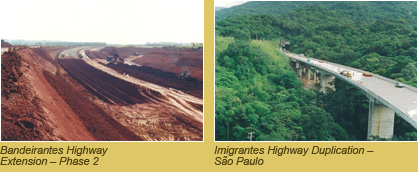
Other services for highway concessionaires include development of comprehensive Environmental and Social Management Plans, environmental liability audits, emergency response plans for spills and other environmental risks, solid waste management plans and assistance with environmental reporting to meet concession contract or Multilateral Financial Institution requirements.
In the case of two highway concessionaires in the state of São Paulo, the Environmental and Social Management Plans developed by JGP were reviewed and approved by IFC and IDB that co-financed the respective Investment Programs. After this, both IFC and IDB began retaining JGP services for Environmental and Social Due Diligence Assessments and associated services throughout South America. This led to JGP’s involvement with toll-road concession projects in Chile (Ruta 68 and Autopista Troncal Sur), Peru (Panamerican Highway between Huacho and Pativilca), Panama (Madden-Colon Highway), Dominican Republic (Autopista del Coral) and Mexico (Red FARAC).
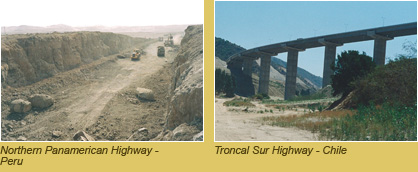
In 2004, JGP’s services were retained for preparation of the ESIA of São Paulo Metropolitan Beltway’s (RODOANEL) Southern Segment. With 61 km. (6 lane and 8 lane segments), this was a major challenge, since the alignment intercepts very important watershed protection areas. 13 Public Hearing were held on the project and significant opposition from environmental groups had to be overcome. JGP’s assessment resulted in issuance of the Preliminary Environmental License by early 2006. Subsequently, JGP prepared the environmental management plans for the construction phase, resulting in issuance of the first Environmental Installation Licenses by August 2006. Between 2006 and 2009, JGP was involved in environmental supervision of construction of a 20 km reach of the Southern Segment.
In 2009, JGP was responsible for the EISA on the Eastern Segment of the RODOANEL (41 km); and in 2010 the firm developed the EISA for the Northern Segment (42 km) and subsequently was retained for development of Environmental and Social Management Plans. Thus, over a 14 year period (1997 / 2011), JGP has been responsible for environmental permitting of the complete beltway (177 km), which constitutes the most complex transportation project implemented in Brazil, with total costs in excess of US$ 10 billion (see Landmark Projects).
JGP has a similar level of responsibility with respect to the Tamoios Highway export corridor. This also involves duplication of a reach intercepting a State Park (Serra do Mar) and new alignments along densely occupied coastal regions. Four (04) ESIAs were prepared and JGP has been involved with E&S management and monitoring programs during construction of all corridor components.
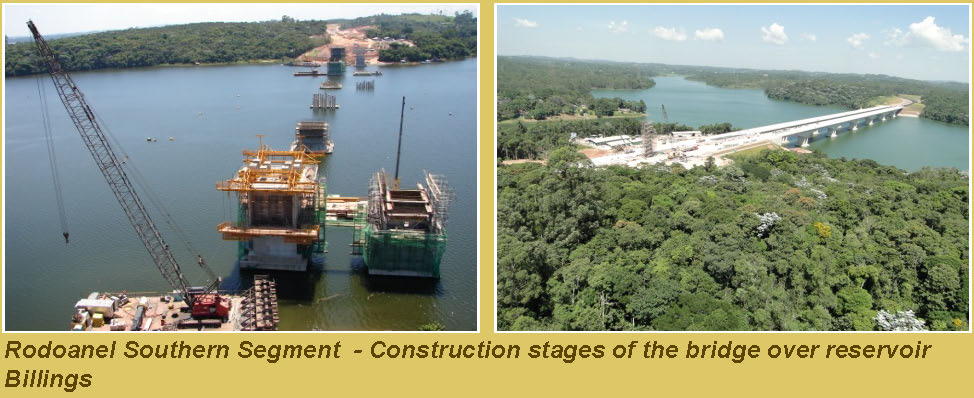
ESIA experience relative to urban mass transit projects includes Bus Rapid Transit corridors (BRT) in Brazil, Tanzania and Senegal, as well as surface passenger train lines. Environmental and Social Due Diligence Assessments were developed for Line 4 and Line 6 of São Paulo’s METRO subway system (over 30 km. in total) and Line 3 of Caracas’ subway system (9 km).
JGP has also been responsible for the environmental aspects of metropolitan transportation plans. This included the Angelopolis Project in Puebla (Mexico) and the PDTU (Urban Transportation Master Plan) of Rio de Janeiro. In both cases, JGP assisted with environmental screening of proposed investments, evaluation of alternatives and preliminary social and environmental impact assessments.
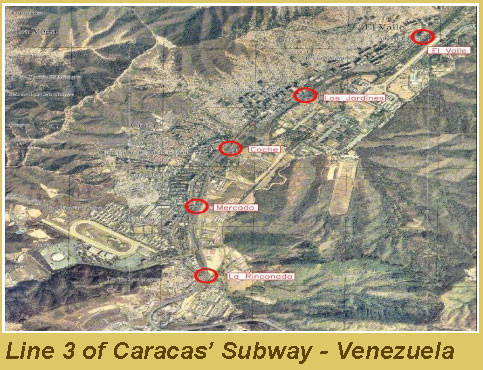 With regards to airports, JGP’s experience includes 14 projects. ESIAs have been developed for two airports. During the concession process of the international airports of Galeão (Rio de Janeiro) and Confins (Belo Horizonte), JGP assisted IFC / BNDES in the environmental and social aspects of the feasibility studies and in preparation of E&S aspects of the tender documents. JGP had similar responsibilities in the case of the airport expansions of Fortaleza, Salvador, Florianopolis and Porto Alegre. With regards to airports, JGP’s experience includes 14 projects. ESIAs have been developed for two airports. During the concession process of the international airports of Galeão (Rio de Janeiro) and Confins (Belo Horizonte), JGP assisted IFC / BNDES in the environmental and social aspects of the feasibility studies and in preparation of E&S aspects of the tender documents. JGP had similar responsibilities in the case of the airport expansions of Fortaleza, Salvador, Florianopolis and Porto Alegre.
In the case of the Guarulhos airport that is the highest traffic airport in Brazil, in 2003 a 3rd runway and an additional terminal building, among other secondary facilities, were planned by the state airport authority (INFRAERO). This expansion would have required relocation of over 5.300 residences and small businesses. JGP was hired by the to provide strategic advise during the environmental permitting process. Tasks under JGP’s responsibility included review of the project’s ESIA (in particular with regard to social impacts and compensation measures), preparation of a Resettlement Action Framework, preparation of a Public Consultation and Disclosure Plan, and implementation and management of a Project Information Center.
Port experience includes ESIAs and associated environmental permitting services for 24 projects distributed in Brazil, Peru, Colombia and Angola.
Environmental management system development and implementation, and assistance for ISO 14.001 certification, has been concluded for Maggi Group’s soybean terminals at Porto Velho (Rondônia) and Itacoatiara (Amazonas). These management systems included HERMASA which is the barge company operating on the Madeira River waterway.
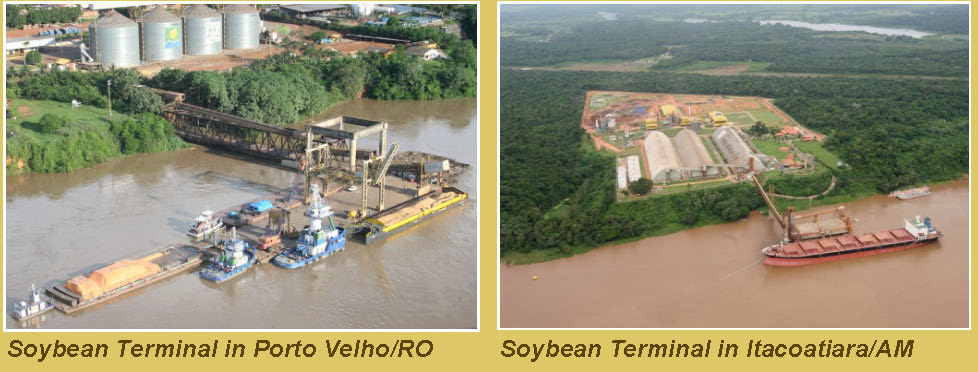
Other waterway experience includes the Paraguay river, whose use for export of iron ore was assessed as part of the Strategic Environmental Assessment of a major iron ore mine expansion and steel mill project in the State do Mato Grosso do Sul. Use of this waterway by a major cement plant in Paraguay was also assessed.
See complete project experience list in the Restricted Access Zone. |
|
|
 |

